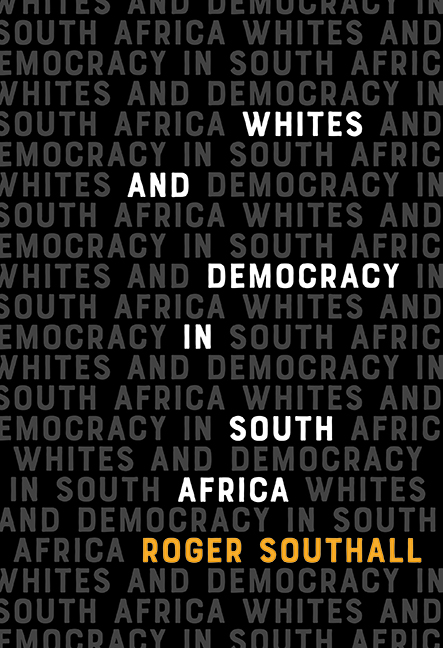8 - Political Liberalism after Apartheid: The Democratic Alliance
Published online by Cambridge University Press: 26 May 2022
Summary
The DA has established itself as the principal party of opposition in post-apartheid South Africa. As such, it demands attention for a number of reasons. The first is that it is the latest embodiment in party form of the liberal tradition, claiming its inheritance from both the LP and more especially the PFP. The second is that it is the party which most whites who participate politically reward with their votes and through which the white voice is heard. Correspondingly, third, it is regularly depicted by its major opponents, notably the ruling ANC, as being vigorously dedicated to serving white interests and white interests alone.
The irony in all this is that, today, the DA proclaims its commitment to non-racialism perhaps even more loudly than the ANC. It points to the increasing racial diversity of its leadership, membership and support base, and charges that, in contrast, the ANC has become increasingly Africanist, more racially exclusive and ever less representative of the South African rainbow. Sadly, what has become clear as the years have rolled by is that, contrary to the intentions of the founders of South Africa's democracy, the political arena has become increasingly racialized. The DA has been irretrievably caught up in this story. Indeed, although the party is formally and substantively committed to non-racialism, it has become trapped by race and is unlikely to escape its confinement in its present form.
The challenge of race
Descended most recently from the PFP and DP, the DA is proud of its liberal heritage, and today claims that its politics is a combination of liberal principle and pragmatic politics. This revolves around three fundamental platforms. The first is commitment to the constitutional state – that is, one whose government is bound by the constitution, the rule of law, the Bill of Rights, regular and free elections and a separation of ruling party and state. Second comes the promotion of an ‘Open Opportunity Society’ whereby there is equality of opportunity for all, regardless of the circumstances of birth. This entails the right of all to private ownership and free participation in a market economy alongside the state's obligation to achieve the substantive equality of citizens by progressive realization of access to housing, health services and social security for people unable to help themselves.
- Type
- Chapter
- Information
- Whites and Democracy in South Africa , pp. 156 - 179Publisher: Boydell & BrewerPrint publication year: 2022



